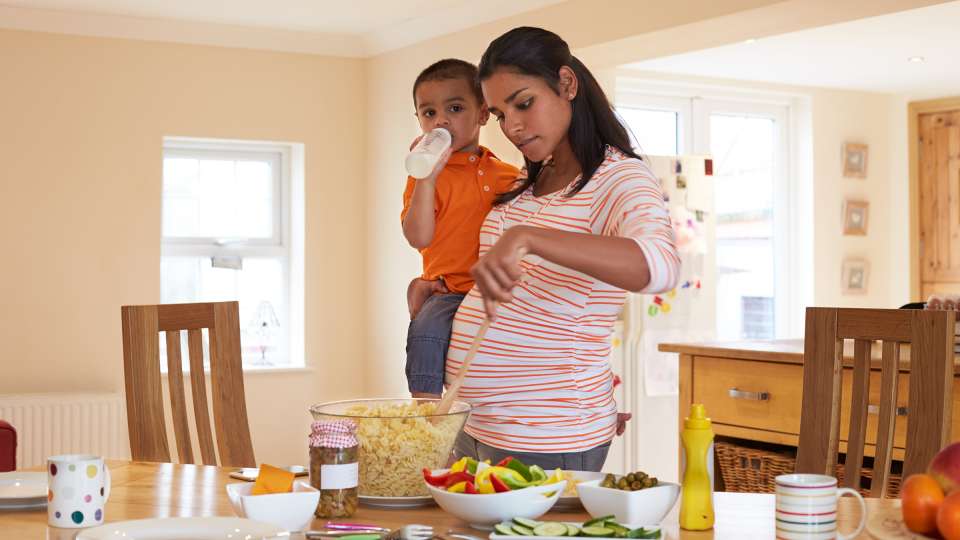Why the First 1,000 Days Are Critical to Your Baby’s Health

We all know it’s important for women to stay healthy during pregnancy—no alcohol, good diet, adequate sleep. But research is now showing just how critical nutrition is in particular.
“The nutrition both mother and baby receive during the baby’s first 1,000 days of life—so, from pregnancy to age two—can really have a profound effect on brain development, healthy growth and building a strong immune system for the child,” says Judy Simon, R.D., C.D., a dietitian who specializes in women’s reproductive health.
Research has shown that women who are overweight or obese are more likely to have babies who develop obesity. Childhood obesity is a serious problem, affecting one in every five children in the United States.
And men, listen up, because this doesn’t just apply to women. Research shows that sperm and men’s fertility can be influenced by diet and nutrition, meaning that men should be just as thoughtful about what they eat if they want to have children.
“Sperm is negatively impacted when men have a higher BMI or don’t have a healthy diet,” says Simon.
The idea that what parents eat before conception is part of a field of research called epigenetics. The principle is that our environment and family history can influence the regulation of our genes, determining which genes get turned on or off but not altering the genes themselves.
That means that how your parents, grandparents and great-grandparents lived, what they ate and what diseases they had can affect your and your children’s health.
This can be an intimidating thought if chronic disease runs in your family. However, researchers are starting to understand that making positive changes, particularly where nutrition is concerned, can alter epigenetics—suggesting that we might be able to change our fates or those of our children.
Small changes in diet, like eating more fruits, vegetables and whole grains, can be meaningful, she says. If you know of something in your family history that might predispose your child for a chronic condition, you can use that knowledge to make an extra effort to make smart choices to counteract the things you can’t change.
“We’re trying to empower parents that the choices they’re making, from pre-conception to pregnancy and those first few years of life, make a difference for their child and a couple generations on,” says Simon.

 Healthy ideas for your inbox
Healthy ideas for your inbox





